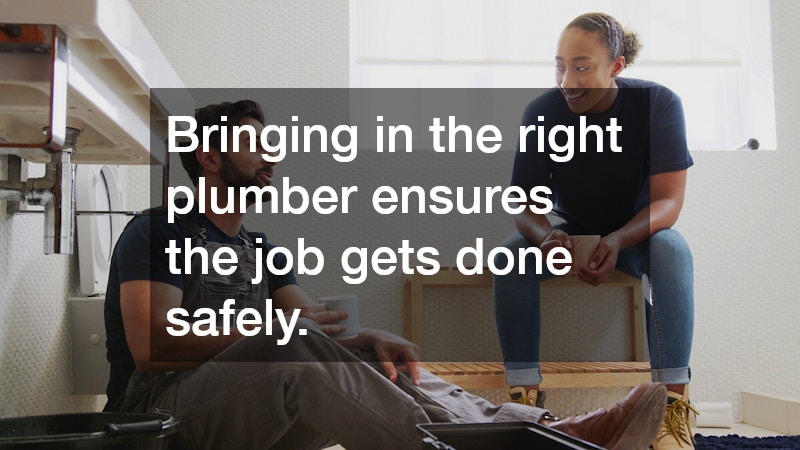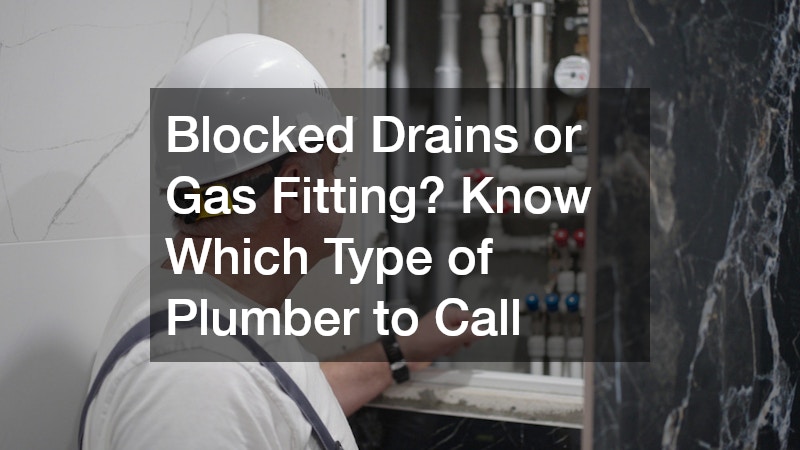Plumbing is far more specialised than most people realise, especially in commercial environments. Whether you’re managing a facility, fitting out a new site or handling compliance inspections, knowing which type of plumber to call can make or break your schedule, budget and reputation.
This guide breaks down the key types of plumbing professionals relevant to commercial work, so you can engage the right professional for the task at hand.
Commercial Plumbers
Commercial plumbers work in high-traffic, high-capacity environments like office towers, factories, hospitals, shopping centres and schools. Their focus is on systems that serve large volumes of users across multiple floors and sections.
Unlike general plumbers, a commercial plumber understands complex system layouts, zoning regulations, and site-specific codes. Their work often intersects with engineers, architects and safety consultants during new builds, upgrades and major repairs.
You’d typically engage a commercial plumber for:
-
Installing or upgrading plumbing infrastructure in new buildings
-
Compliance-focused maintenance in healthcare, education or hospitality
-
Solving system-wide water pressure or drainage issues across multiple tenancies
Their deep understanding of building codes and operational standards makes them a must-have for any commercial project team.
Service and Maintenance Plumbers
These professionals keep your plumbing systems running smoothly over time. Unlike project-based plumbers who focus on installation, service and maintenance plumbers are brought in to inspect, maintain and fine-tune existing infrastructure.
They’re commonly engaged on a contract basis to ensure sites remain compliant, functional and free from hidden faults—particularly in regulated environments like aged care, food production or childcare.
Common services include:
-
Scheduled plumbing inspections
-
Pre-emptive repairs to valves, pipes and fixtures
-
Diagnosing pressure fluctuations or water quality issues
-
Issuing compliance documentation where required
Think of them as your go-to team for preventing breakdowns, rather than fixing disasters after the fact. A solid maintenance partner can also help you avoid unnecessary shutdowns and extend the lifespan of critical assets.
Sanitary Plumbers
Sanitary plumbers manage wastewater systems across commercial premises. Their role is to keep toilets, sinks, grease traps, sewerage lines and suspended drains working efficiently, safely and hygienically.
For industries with high volumes of wastewater—like hospitality, healthcare, gyms or commercial kitchens—having a qualified sanitary plumber on hand is essential.
Duties typically include:
-
Installing or relocating toilets, urinals and basins
-
Clearing blocked sewer lines and grease traps
-
Connecting or adjusting suspended drainage systems
-
Ensuring sanitary infrastructure complies with hygiene and building codes
This work often involves exposure to waste and hazardous materials, which is why only properly licensed and trained sanitary plumbers should be engaged for these tasks.
Water Supply Plumbers
Water supply plumbers focus on how clean water gets into your building—and where it goes. Their work underpins everything from food preparation and hygiene facilities to emergency water storage and high-demand supply systems.
This role is especially important in buildings where multiple outlets (e.g. kitchens, washrooms, medical facilities) require consistent, high-volume water access.
You might need a water supply plumber for:
-
Installing or upgrading overhead and backup storage tanks
-
Re-routing water supply to accommodate layout changes
-
Installing water lines for fire systems or commercial dishwashers
-
Diagnosing pressure loss or inconsistent flow
While often behind the scenes, water supply plumbers are central to the functionality of any commercial premises that relies on clean water delivery at scale.
Gas Fitters (Licenced Plumbers Only)
Gas fitting is a field that requires separate licensing. In commercial settings, it’s critical that all gas installations, maintenance and upgrades are performed by properly certified tradespeople—especially where there are kitchen, heating or industrial fuel systems involved.
Use a gas fitter for:
-
Installing or relocating commercial gas appliances
-
Pressure testing and safety checks
-
Diagnosing gas odours or irregular burner behaviour
-
Issuing gas compliance certificates
Improper work on gas lines can lead to serious legal, safety and insurance risks. Always confirm your plumber is authorised to perform gas work before engaging them.
Commercial plumbing work demands more than just technical skill. It requires deep knowledge of compliance, coordination with other trades, and a strategic understanding of how plumbing supports business continuity. Bringing in the right plumber ensures the job gets done safely, legally and with minimal disruption to your operations.
Looking for more practical guides for managing commercial contractors? Browse our blogs for templates, checklists and real-world advice that helps you hire better, run leaner, and stay ahead of compliance.



